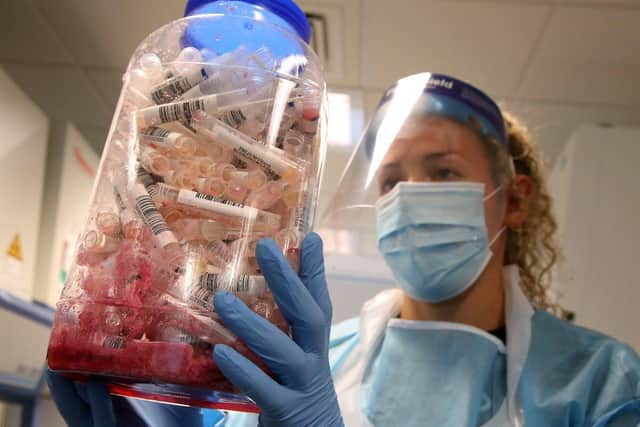South Tyneside coronavirus rate falls by more than half in first month of latest lockdown
and live on Freeview channel 276
But there are still dozens of new cases being confirmed every day.
It was on Monday, January 4, that Prime Minister Boris Johnson announced that the country would be entering a third national lockdown.
Advertisement
Hide AdAdvertisement
Hide AdThe move came after it was confirmed a new, more infectious strain of the virus had been identified.


The announcement, which was made in a televised address to the nation, followed First Minister Nicola Sturgeon imposing a lockdown on Scotland.
New rules required people to stay at home wherever possible except for exercise; schools to remain closed except for children of key workers and pupils who require classroom teaching, and non-essential shops to close.
You can also exercise with your household (or support bubble) or one other person, but this should be limited to once per day, and you should not travel outside your local area.
Advertisement
Hide AdAdvertisement
Hide AdThe regulations came into legal effect from Wednesday, January 6, but the Prime Minister urged people to start following them immediately.
The latest figures from NHS England and Public Health England show how the lockdown has affected infection rates in South Tyneside.
Yesterday, Thursday, February 4, there were 51 new cases confirmed in the borough, down by almost two thirds on the 148 cases confirmed on January 4.
There have now been a total of 10,095 coronavirus cases in South Tyneside, up by 1,730 from the 8,365 there had been on January 4.
Advertisement
Hide AdAdvertisement
Hide AdThe latest weekly rate, which covers the seven days to January 30, is also down. There were 333 new cases in the period, the equivalent of 220.6 per 100,000 population, compared to 633 new cases in the week to December 30 – a rate of 419.3 per 100,000.
There were 206 Covid patients being treated in the South Tyneside and Sunderland hospital trust on Tuesday, February 2, (the last date for which figures are available), down from 235 on January 4.
A total of 811 people have died in the trust after testing positive for Covid, a rise of 150 since January 4.
